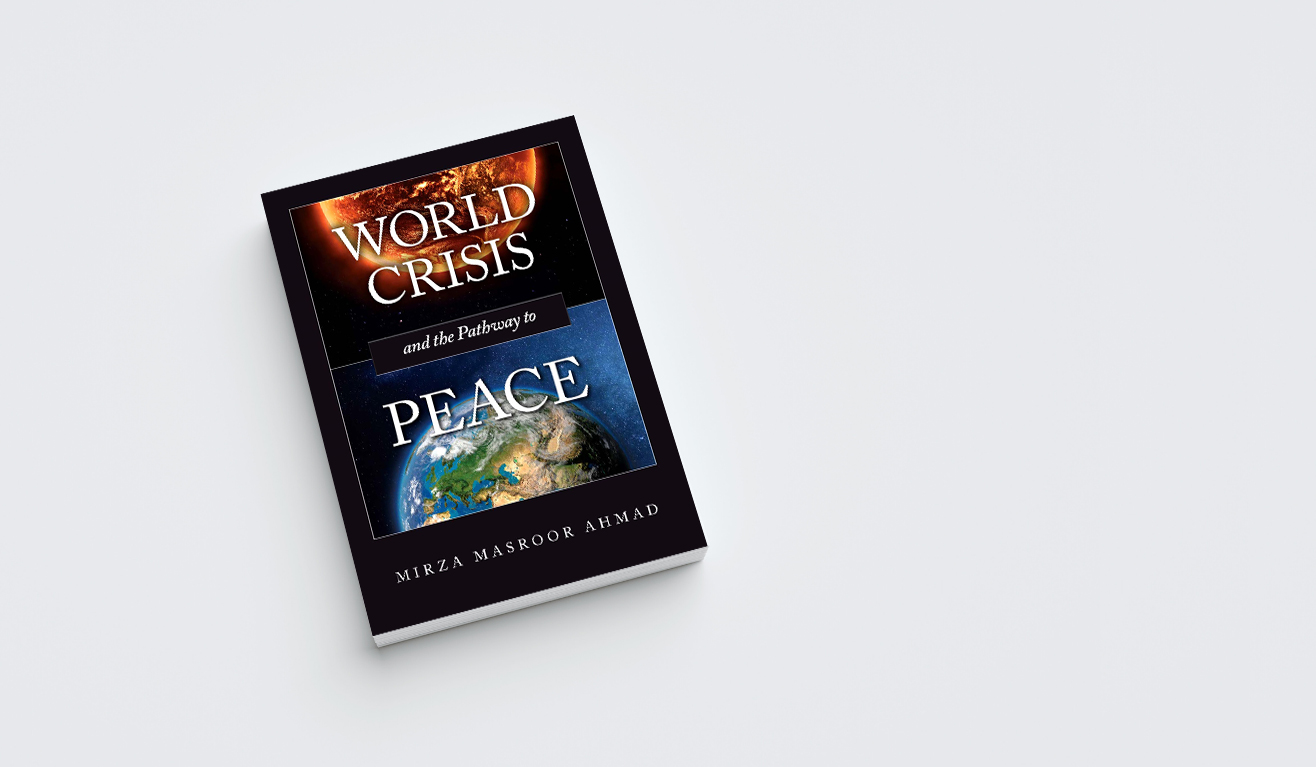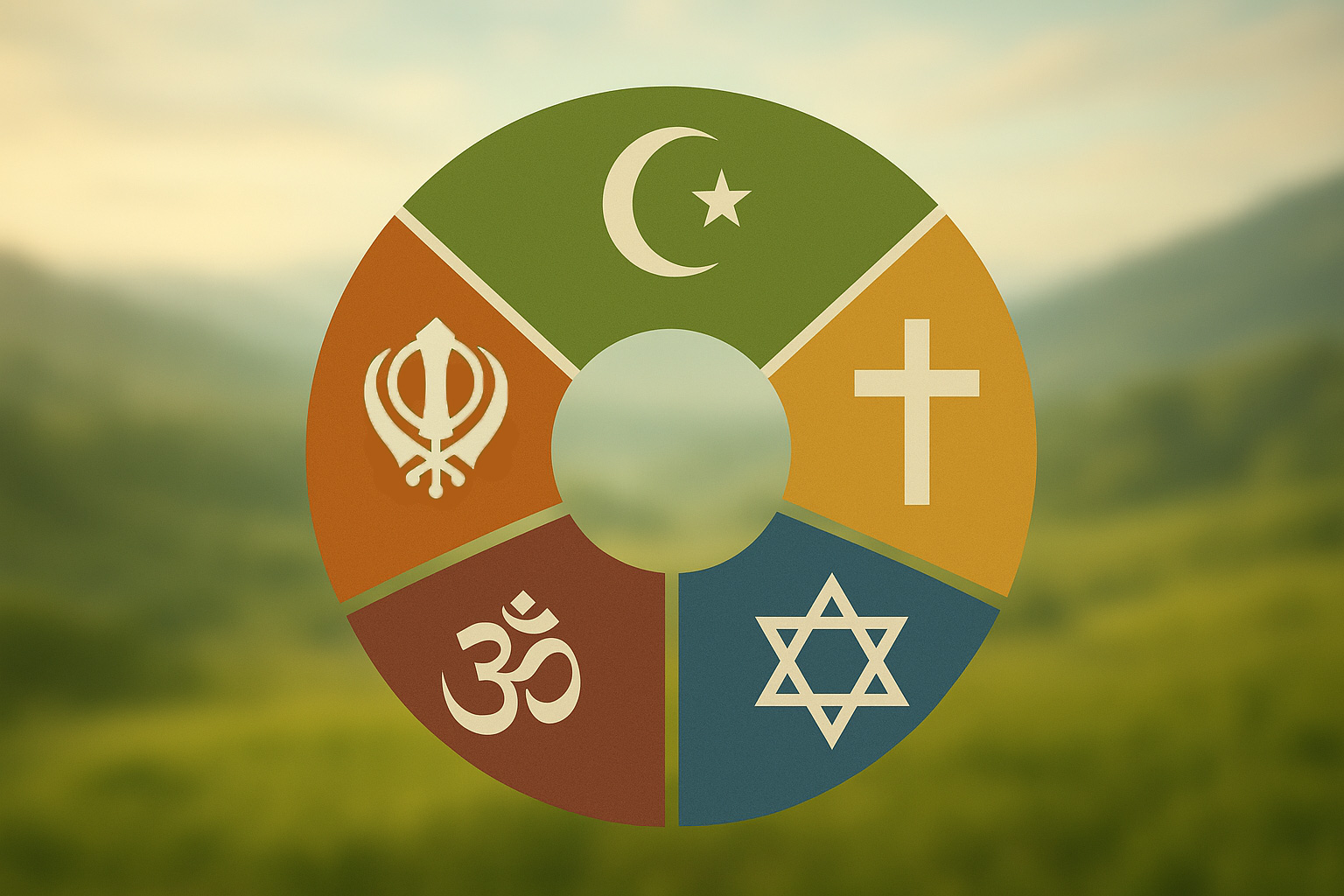It is very easy to simply speak of, or hear the words, ‘loyalty and love for one’s nation.’ However, in reality, these few words encompass meanings that are wide-ranging, beautiful and of tremendous depth.
AUGUST 15, 2020
Every person loves his homeland. This is a natural emotion one feels for the country he is born in, the nation which nurtured him or the place his childhood memories are associated with.
But there is a great disparity between loving one’s country and being truly loyal towards it. Islam, however, urges its followers to not just love his motherland but also to exhibit the most exemplary standards of loyalty to his nation.
Islamic standard of loyalty
Explaining the Islamic standard of loyalty, the worldwide head of the Ahmadiyya Muslim Community, Hazrat Mirza Masroor Ahmadaa says:
True loyalty requires a relationship built on sincerity and integrity. It requires what a person displays on the surface to be the same as what lies beneath.
In terms of nationality, these principles are of the utmost importance. Therefore, it is essential for a citizen of any country to establish a relationship of genuine loyalty and faithfulness to his nation.[1]
Islamic standard of loyalty requires a person to fulfill all covenants he made not only with Allah, but also with others. His Holiness says:
The definition and true meaning of ‘loyalty’ is the unequivocal fulfilment of one’s pledges and covenants at every level and under all circumstances, regardless of difficulty. This is the true standard of faithfulness required by Islam.
At various places in the Holy Qur’an, Allah has instructed Muslims that they must fulfil their pledges and covenants, because they will be held to account by Him over all undertakings that they have made.
The Muslims have been instructed to fulfil all covenants, including those made with God Almighty, and also all other pledges they have made, according to their respective degrees of importance.[2]
Choosing between creed and country
A question may arise here as to how a Muslim can remain loyal to his country while religion is of paramount importance to him. Will he not sacrifice his pledge to his country on certain occasions? Addressing this, his holiness says:
The Holy Prophet Muhammad (peace be upon him) himself taught that the ‘love for one’s nation is a part of faith.’ Thus, sincere patriotism is a requirement in Islam. To truly love God and Islam requires a person to love his nation.
It is quite clear, therefore, that there can be no conflict of interest between a person’s love for God, and love for his country… Hence, it is impossible that the love a true Muslim holds for God could ever prove to be an impediment or barrier preventing him from displaying true love and faithfulness towards his country.[3]
When state is against your beliefs
Another question which may arise is how a Muslim is supposed to maintain a relationship of love and loyalty with his country when his religious rights are completely denied. His holiness says:
In such circumstances, Islam advocates that where persecution goes beyond all limits and becomes unbearable, then at that time, a person should leave the town or country and migrate to a place where he is free to practise his religion in peace.
However, alongside this guidance, Islam also teaches that under no circumstances should any individual take the law into his own hands and nor should he partake in any schemes or conspiracies against his country.[4]
No rebellion against the nation
Man often tends to act in a disloyal fashion in order to fulfill his material desires. This can result in his committing treachery and rebelling against his country. However, Islam considers it a grave sin to betray one’s country. His holiness says:
According to Islamic teachings, God Almighty has forbidden all forms of treachery or rebellion, whether against one’s country or one’s government. This is because rebellion or acting against the state is a threat to the peace and security of a nation.
Indeed, where internal rebellion or opposition occurs, then it fans the flames of external opposition and encourages outsiders to take advantage of the internal disorder.
Hence, the consequences of disloyalty to your nation can be far-reaching and extreme… Keeping all of this in mind, loyalty to one’s nation requires a person to display patience, to show morality and to follow the laws of the land.[5]
Vote wisely and responsibly
Choosing the appropriate leader is also the responsibility of the people of a nation. Muslims are required to give the power of government to those entitled to it, so that the nation may prosper. His holiness says:
Islam teaches that a person’s vote should be exercised with a sense of loyalty and love for his country. A person’s vote should be cast with the betterment of the nation in mind. Therefore, a person should not look at his own priorities and from which candidate or party he can personally benefit; instead, a person should make his decision in a balanced way whereby he assesses which candidate or party will help the entire nation progress.
The keys to government are a huge trust and thus they should only be handed over to the party who the voter honestly believes is best suited and most deserving. This is the true Islam, and this is true loyalty.[6]
Be constructive, not destructive
In today’s world, we see that often members of the public take part in strikes and protests against their government. In most cases, such protests include vandalizing public and private properties. Explaining the Islamic perspective on such actions, his holiness says:
Though they may claim to be acting out of love, the truth is that such acts have nothing to do with loyalty or love for the nation. It should be remembered that even where protests or strikes are conducted peacefully, without recourse to criminal damage or violence, it still can have a very negative effect. This is because even peaceful protests often result in a loss of millions to the economy of the nation. Under no circumstances can such behaviour be considered to be an example of loyalty to the nation.
A golden principle taught by the Founder of the Ahmadiyya Muslim Jama‘at was that under all circumstances, we must always remain obedient to Allah, to the Prophets and to the rulers of our nation. This is the same teaching given in the Holy Qur’an. Hence, even where a country permits strikes or protests to take place, they should only be conducted to the extent where they do not harm or cause damage to the nation or to the economy.[7]
Hence, the above mentioned principles amply demonstrate how a Muslim is obliged by his religion to remain loyal to his country. It is obvious that a Muslim should display his patriotism in a rational way and always assist in the development of his nation.
However, these are only a few aspects of Islamic teachings in this regard. To have a full comprehension of the topic, respected readers are requested to read the address by the worldwide head of the Ahmadiyya Muslim Community, Hazrat Mirza Masroor Ahmadaa, which he delivered at the Military Headquarters Germany, which is available in his book World Crisis and the Pathway to Peace.
References:
[1] World Crisis and the Pathway to Peace p. 28
[2] World Crisis and the Pathway to Peace p. 29
[3] World Crisis and the Pathway to Peace p. 29-30
[4] World Crisis and the Pathway to Peace p. 31
[5] World Crisis and the Pathway to Peace p. 33
[6] World Crisis and the Pathway to Peace p. 33-34
[7] World Crisis and the Pathway to Peace p. 34-35













0 Comments